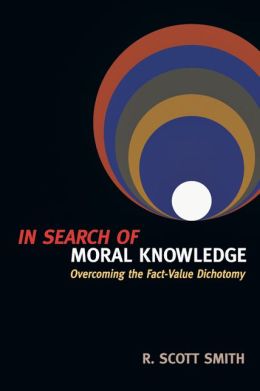
In Search of Moral Knowledge
R. Scott Smith (InterVarsity Press: June 2, 2014), 363 pages.Scott Smith, carefully and consciously, with philosophical rigor and clarity of word, offers a defense of moral knowledge that is tightly tethered to more ancient, and Christian, understandings of the good, the true and the beautiful. The result is a compelling case for why philosophical naturalism, including its cousin, nominalism, must be rejected by anyone who sincerely seeks after moral knowledge. Smith’s greatest accomplishment in this book, however, is the way in which he interacts, at a high level, with contemporary philosophical schools of thought and ancient traditions in a way fully accessible to the educated layman and college student. ~ Francis J. Beckwith
Table of Contents
-
- Acknowledgments
- Introduction
- Part One: A Short History of Western Ethics
- 1. Christian, Biblical Ethics
- 2. Ancient Ethics: Plato and Aristotle on Moral Knowledge
- 3. Moral Knowledge from Augustine through Aquinas
- 4. Moral Knowledge in the Reformation and the Enlightenment Shift
- Part Two: Naturalism, Relativism and Postmodernism: Understanding and Assessing Today’s Dominant Moral Paradigms
- 5. Options for Naturalistic Ethics
- 6. Naturalism, Knowledge and the Fact-Value Split
- 7. More Modern Options: Ethical Relativism, Rawls’s Political Liberalism and Korsgaard’s Constructivism
- 8. Introduction to the Postmodern Period: A Plurality of Different Voices
- 9. MacIntyre’s Recovered Thomistic Ethics
- 10. Hauerwas’s Narrative Christian Ethics
- 11. Assessing MacIntyre’s and Hauerwas’s Projects
- Part Three: Toward a Theory of Moral Knowledge
- 12. Moral Realism and Addressing the Crisis of (Moral) Knowledge
- 13. Religiously Based Moral Knowledge — and Final Issues
- Index